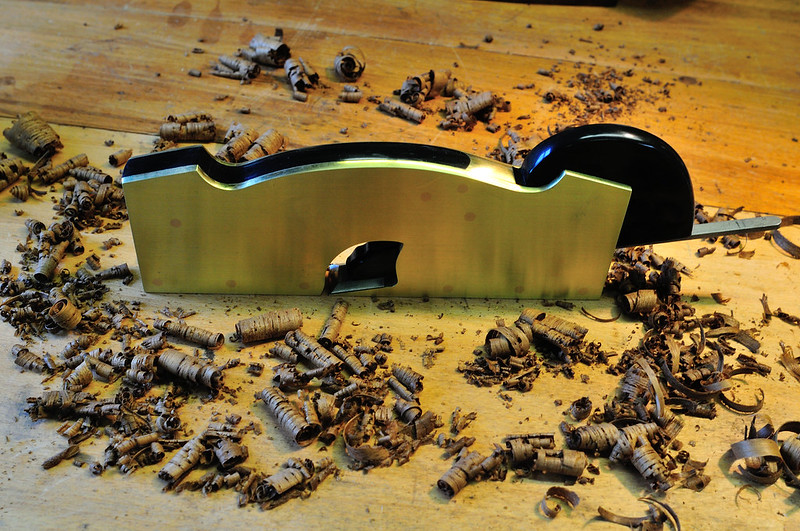Found that out today, that's about all!
Not the face, but the edges. I'm about to fabricate some countertops for my kitchen and the normal method is to glue (with a two part glue), rout and then sand, but there are a couple of spots where I'd rather plane (because I have less chance of a disaster, would be different for someone who fabricates with templates and a router on a regular basis). Everything that I've read says you can't plane corian or do anything other than sand it, but I tested a couple of scraps yesterday with a chinese HSS iron in a stanley 4 and there's really no issue with it.
Same plane still planed wood after planing about 25 strokes on corian.
Anyone else ever try planing it? It really stinks when you rout, cut or sand it.
Not the face, but the edges. I'm about to fabricate some countertops for my kitchen and the normal method is to glue (with a two part glue), rout and then sand, but there are a couple of spots where I'd rather plane (because I have less chance of a disaster, would be different for someone who fabricates with templates and a router on a regular basis). Everything that I've read says you can't plane corian or do anything other than sand it, but I tested a couple of scraps yesterday with a chinese HSS iron in a stanley 4 and there's really no issue with it.
Same plane still planed wood after planing about 25 strokes on corian.
Anyone else ever try planing it? It really stinks when you rout, cut or sand it.

































